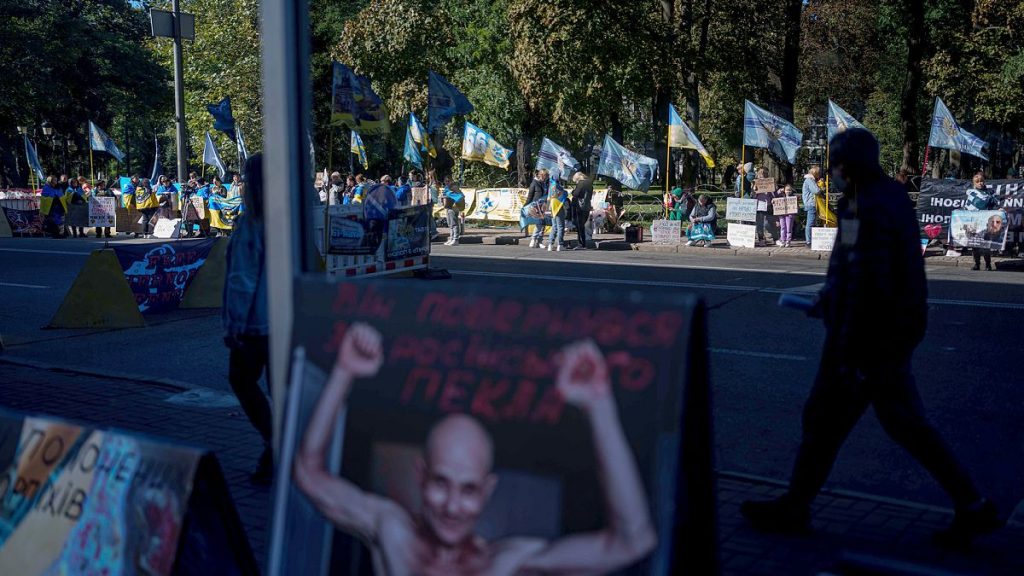The UN Human Rights Monitoring Mission in Ukraine (HRMMU) has documented a disturbing surge in summary executions of Ukrainian prisoners of war (POWs) by Russian forces. Since August 2024, the Mission has recorded 79 such killings across 24 separate incidents. These executions frequently involve the immediate shooting of surrendered or captured Ukrainian soldiers, often while unarmed or injured. The HRMMU’s findings are based on meticulous investigations involving witness testimonies, analysis of video and photographic evidence disseminated by both Ukrainian and Russian sources, and rigorous geo- and chrono-location verification. These executions paint a grim picture of blatant disregard for international humanitarian law and the basic rights of combatants.
A chilling aspect of these atrocities is the documented dehumanization of Ukrainian POWs by Russian figures and institutions. The HRMMU notes that public figures in Russia, including government officials, have openly called for inhumane treatment and even the execution of captured Ukrainian soldiers. This rhetoric, coupled with the dissemination of dehumanizing language by state-owned media, fosters an environment conducive to such violations. Ukrainian POWs have reported being subjected to verbal abuse and denigration, often being labeled as “Nazis” or “fascists” by their captors, mirroring the rhetoric prevalent in Russian public discourse. This dehumanizing narrative strips Ukrainian soldiers of their humanity and creates a climate of impunity for perpetrators.
The HRMMU has also identified systemic factors within the Russian legal and military framework that contribute to this culture of impunity. Legislation passed in 2023 and expanded in 2024 exempts Russian military personnel from accountability for criminal acts, effectively shielding them from prosecution. This legal loophole, combined with the documented direct orders or endorsements of executions by military groups linked to the Russian armed forces, creates a permissive environment where such atrocities can occur without fear of repercussions. The public sharing of these orders on social media platforms further underscores the disregard for international norms and accountability.
The brazen nature of these executions is further exemplified by the frequent documentation and dissemination of the acts by Russian forces themselves. The HRMMU highlights the disturbing trend of Russian soldiers recording their war crimes and subsequently posting them on social media. This chilling practice not only serves as evidence of the crimes but also represents a further violation of international humanitarian law, adding another layer of depravity to these acts. One particularly horrific example involves the circulation of a photograph depicting a decapitated Ukrainian soldier, a gruesome display of disregard for human dignity and international law.
The Ukrainian authorities are actively working to document these egregious violations of the Geneva Conventions. As of mid-December 2024, they have documented the execution of 177 captured Ukrainian soldiers, a number that is likely to rise as investigations continue. In the case of the decapitated soldier, Ukrainian authorities have preliminarily identified the victim and are working to contact his family. The national police have launched an investigation into this specific incident, and the Prosecutor General’s Office has been informed as part of the ongoing effort to compile evidence of Russian war crimes.
The documented summary executions of Ukrainian POWs by Russian forces constitute a grave violation of international humanitarian law and underscore a deeply troubling pattern of dehumanization and impunity. The HRMMU’s findings, based on meticulous investigation and corroborated by witness testimonies and multimedia evidence, paint a stark picture of the atrocities being committed in the conflict. The Russian authorities’ rhetoric, legal loopholes, and the public dissemination of these crimes highlight the urgent need for accountability and international action to prevent further atrocities. The ongoing documentation efforts by Ukrainian authorities are crucial for ensuring that these crimes are not forgotten and that those responsible are brought to justice.














